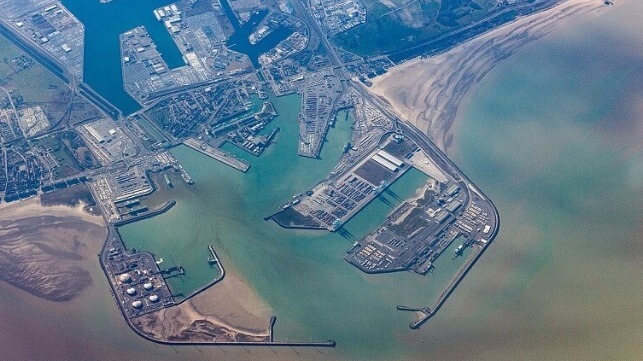Belgium Advances Europe’s Hydrogen Ambitions with Zeebrugge Plant

Europe’s hydrogen ambitions have received a boost after a consortium of Belgium companies’ revealed plans to build a green hydrogen production facility in the port of Zeebrugge.
Belgian consortium Hyoffwind said that it has signed an agreement with John Cockerill and BESIX to design and build a power-to-gas facility that can convert renewable electricity into green hydrogen.
The Hyoffwind project is being developed by a consortium consisting of Virya Energy - whose specialty is generation and sale of renewable energy - and pipeline operator Fluxys.
The first phase of the planned green hydrogen project will consist of a facility that can convert 25 MW of electricity into green hydrogen. The consortium plans to scale up to 100 MW in the second phase.
“With Hyoffwind, we are entering the next stage in the transition towards more fit for purpose green energy sources by enabling the start of a green hydrogen supply chain. The availability of clean hydrogen is set to further decarbonize industries such as transport and logistics,” said Paul Tummers, Virya Energy CEO.
The plan to build the green hydrogen facility at the port of Zeebrugge - which is in the process of finalizing a merger with the port of Antwerp - forms part of Europe’s hydrogen strategy. The European Commission wants to make the EU a pioneer in the use of hydrogen as an energy carrier.
The project, combined with the development of hydrogen infrastructure, will make a major contribution to the Flemish, Belgian and European hydrogen strategy by taking a first step towards the development of Flanders and Belgium as a European green hydrogen hub. Belgium wants to become the import and transit hub in a European-wide hydrogen backbone.
In its hydrogen strategy, the EU is giving priority to green hydrogen, which is produced from renewable electricity. The strategy aims to increase green hydrogen production to one million tonnes by 2024 and 10 million tonnes by 2030. Green hydrogen is a crucial building block for a renewable energy economy, as it can be used as a raw material for industrial processes and for a variety of transport applications.
According to the Flemish Minister for Economy and Innovation Hilde Crevits, Hyoffwind is one of the projects that Flanders has submitted in connection with the European call for hydrogen Important Projects of Common European Interests (IPCEIs) and which aims to put the region as a frontrunner in sustainable hydrogen.

that matters most
Get the latest maritime news delivered to your inbox daily.
“It is positive that the consortium has taken the next steps towards the first green hydrogen production unit in the port of Zeebrugge. Not only will it produce sustainable hydrogen, but it will also enable companies to acquire knowledge of and expertise in this sustainable technology,” said Crevits.
Top image: Port of Zeebrugge (Sebaso / CC BY 4.0)
